BMW 1 Series vs Toyota Yaris Cross - Differences and prices compared
Compare performance (300 HP vs 130 HP), boot space and price (28800 £ vs 23700 £) at a glance. Find out which car is the better choice for you – BMW 1 Series or Toyota Yaris Cross?
Costs and Efficiency:
When it comes to price and running costs, the biggest differences usually appear. This is often where you see which car fits your budget better in the long run.
Toyota Yaris Cross has a noticeable advantage in terms of price – it starts at 23700 £, while the BMW 1 Series costs 28800 £. That’s a price difference of around 5109 £.
Fuel consumption also shows a difference: BMW 1 Series manages with 4.30 L and is therefore minimal more efficient than the Toyota Yaris Cross with 4.50 L. The difference is about 0.20 L per 100 km.
Engine and Performance:
Under the bonnet, it becomes clear which model is tuned for sportiness and which one takes the lead when you hit the accelerator.
When it comes to engine power, the BMW 1 Series has a decisively edge – offering 300 HP compared to 130 HP. That’s roughly 170 HP more horsepower.
In acceleration from 0 to 100 km/h, the BMW 1 Series is decisively quicker – completing the sprint in 4.90 s, while the Toyota Yaris Cross takes 10.70 s. That’s about 5.80 s faster.
In terms of top speed, the BMW 1 Series performs distinct better – reaching 250 km/h, while the Toyota Yaris Cross tops out at 170 km/h. The difference is around 80 km/h.
Space and Everyday Use:
Beyond pure performance, interior space and usability matter most in daily life. This is where you see which car is more practical and versatile.
Both vehicles offer seating for 5 people.
In curb weight, Toyota Yaris Cross is noticeable lighter – 1180 kg compared to 1465 kg. The difference is around 285 kg.
In terms of boot space, the Toyota Yaris Cross offers minimal more room – 397 L compared to 380 L. That’s a difference of about 17 L.
In maximum load capacity, the BMW 1 Series performs slight better – up to 1200 L, which is about 103 L more than the Toyota Yaris Cross.
Maximum payload is identical – both can carry up to 510 kg.
Who wins the race?
The BMW 1 Series proves to be wins the duel decisively and therefore becomes our DriveDuel Champion!
BMW 1 Series is the better all-rounder in this comparison.
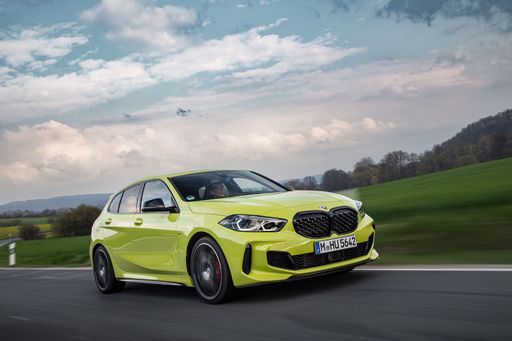
BMW 1 Series
Costs and Consumption
View detailed analysis
Engine and Performance
View detailed analysis
Dimensions and Body
View detailed analysis
BMW 1 Series
The BMW 1 Series is a compact premium hatchback that injects a proper sense of driving fun into everyday life, with sharp handling and a cabin that punches above its class. It’s a great pick for buyers who want sporty manners without losing practicality, and yes, you’ll still get that unmistakable BMW grin behind the wheel.
details
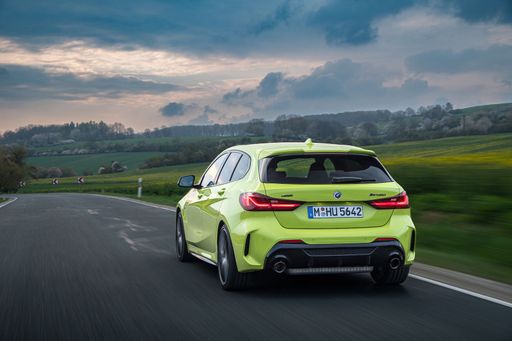
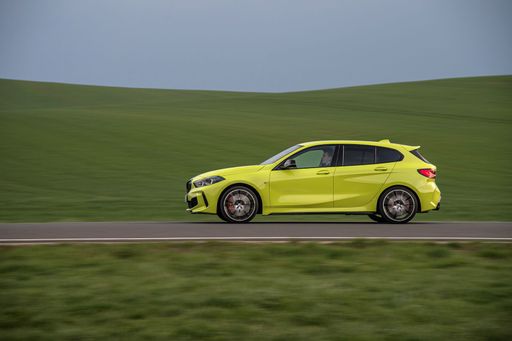
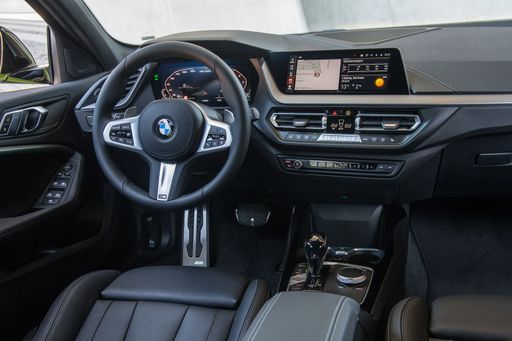
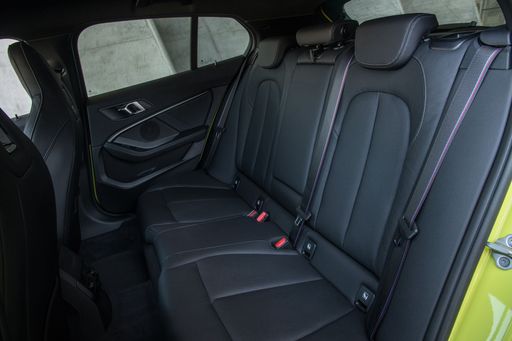
Toyota Yaris Cross
The Toyota Yaris Cross takes the jaunty personality of the Yaris and gives it a taller stance and a bit more practicality, so you get city-friendly agility with added SUV presence. It’s easy to live with, economical on the daily grind, and smartly packaged — a sensible pick for buyers who want fuss-free transport with a touch of character.
details







|

|
|
|
|
Costs and Consumption |
|
|---|---|
|
Price
28800 - 51100 £
|
Price
23700 - 34300 £
|
|
Consumption L/100km
4.3 - 7.6 L
|
Consumption L/100km
4.5 - 4.8 L
|
|
Consumption kWh/100km
-
|
Consumption kWh/100km
-
|
|
Electric Range
-
|
Electric Range
-
|
|
Battery Capacity
-
|
Battery Capacity
-
|
|
co2
112 - 173 g/km
|
co2
101 - 108 g/km
|
|
Fuel tank capacity
49 L
|
Fuel tank capacity
36 L
|
Dimensions and Body |
|
|---|---|
|
Body Type
Hatchback
|
Body Type
SUV
|
|
Seats
5
|
Seats
5
|
|
Doors
5
|
Doors
5
|
|
Curb weight
1465 - 1625 kg
|
Curb weight
1180 - 1290 kg
|
|
Trunk capacity
300 - 380 L
|
Trunk capacity
320 - 397 L
|
|
Length
4361 mm
|
Length
4180 mm
|
|
Width
1800 mm
|
Width
1765 mm
|
|
Height
1459 mm
|
Height
1595 mm
|
|
Max trunk capacity
1135 - 1200 L
|
Max trunk capacity
1097 L
|
|
Payload
475 - 510 kg
|
Payload
485 - 510 kg
|
Engine and Performance |
|
|---|---|
|
Engine Type
Diesel, Petrol MHEV, Diesel MHEV, Petrol
|
Engine Type
Full Hybrid
|
|
Transmission
Automatic
|
Transmission
Automatic
|
|
Transmission Detail
Dual-Clutch Automatic
|
Transmission Detail
CVT
|
|
Drive Type
Front-Wheel Drive, All-Wheel Drive
|
Drive Type
Front-Wheel Drive, All-Wheel Drive
|
|
Power HP
122 - 300 HP
|
Power HP
116 - 130 HP
|
|
Acceleration 0-100km/h
4.9 - 9.8 s
|
Acceleration 0-100km/h
10.7 - 11.3 s
|
|
Max Speed
210 - 250 km/h
|
Max Speed
170 km/h
|
|
Torque
230 - 400 Nm
|
Torque
-
|
|
Number of Cylinders
3 - 4
|
Number of Cylinders
3
|
|
Power kW
90 - 221 kW
|
Power kW
85 - 96 kW
|
|
Engine capacity
1499 - 1998 cm3
|
Engine capacity
1490 cm3
|
General |
|
|---|---|
|
Model Year
2024
|
Model Year
2024 - 2025
|
|
CO2 Efficiency Class
D, C, F
|
CO2 Efficiency Class
C
|
|
Brand
BMW
|
Brand
Toyota
|
What drive types are available for the BMW 1 Series?
The BMW 1 Series is offered with Front-Wheel Drive or All-Wheel Drive.
The prices and data displayed are estimates based on German list prices and may vary by country. This information is not legally binding.
